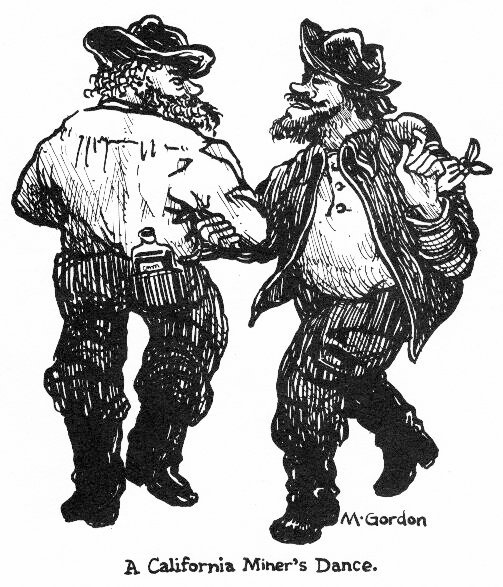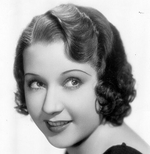White Playwrights Who Write The N-Word For Black Characters
Alex Kulak2
Broadway Legend Joined: 9/11/16
#1White Playwrights Who Write The N-Word For Black Characters
Posted: 6/27/20 at 11:25am
I recently read the play Lower Ninth by Beau Willimon. The play is about 2 black men waiting for rescue on a rooftop in the aftermath of Hurricane Katrina. I liked the play, but in reading it I was thinking how the two black characters frequently use the N-word. They're two black characters, but Beau Willimon is white. He was the one writing the word down on the page.
What do you think the ethics are of a white playwright putting racial slurs in plays for characters of that race to use? Is it problematic in nature, or is it understandable given the context of the actors and characters using the language?
(Yes, I know I'm absolutely overthinking this, and the knee jerk reaction is "Who Cares?". However, there's a global pandemic and I can't leave my house, so I have nothing to do but overthink plays I've read. I want to hear what other people think of this.)
#2White Playwrights Who Write The N-Word For Black Characters
Posted: 6/27/20 at 11:31amYou’ll find a bajillion articles and discussions on this just referring to Tarantino’s films.
#3White Playwrights Who Write The N-Word For Black Characters
Posted: 6/27/20 at 11:44am
Jordan Catalano said: "You’ll find a bajillion articles and discussions on this just referring to Tarantino’s films."
Yeah, he made a career out of it
toottoot
Understudy Joined: 6/17/20
#5White Playwrights Who Write The N-Word For Black Characters
Posted: 6/27/20 at 12:10pm
Alex Kulak2 said: "I recently read the playLower Ninthby Beau Willimon. The play is about 2 black men waiting for rescue on a rooftop in the aftermath of Hurricane Katrina. I liked the play, but in reading it I was thinking how the two black characters frequently use the N-word. They're two black characters, but Beau Willimon is white. He was the one writing the word down on the page.
What do you think the ethics are of a white playwright putting racial slurs in plays for characters of that race to use? Is it problematic in nature, or is it understandable given the context of the actors and characters using the language?
(Yes, I know I'm absolutely overthinking this, and the knee jerk reaction is "Who Cares?". However, there's a global pandemic and I can't leave my house, so I have nothing to do but overthink plays I've read. I want to hear what other people think of this.)"
There's a great deal of conversation (very controversial, too), at least in the downtown and Brooklyn community, about the idea of playwrights writing about a group of underrepresented communities that they do not align with. Or, if they opt to, to hire someone to assist or be apart of the process who is apart of said community. Generally speaking, I think the era of white playwrights using racial slurs in plays, even to keep them in authentic to whatever era or landscape it is covering, is over. I love Lillian Hellman, but I cringe anytime I see The Little Foxes that hasn't received permission from the estate to eliminate any usage of racial slurs, for example. It just feels unnecessary, regardless if it's historically on point. I look forward to the conversation continuing and am always happy to see playwrights listen and make changes.
#6White Playwrights Who Write The N-Word For Black Characters
Posted: 6/27/20 at 8:28pm
Not a play. A musical in 1927. A musical produced by Flo Ziegfeld. Curtain opens on a chorus of black men lugging cotton bales.
"n*s all work on de Mississippi, n*s all work while the white folks play"
"Loadin' up boats wid de bales of cotton, Gittin' no rest till de Judgment Day"
“Show Boat” was a testament to the courage of composer Jerome Kern, lyricist and librettist Oscar Hammerstein II, and producer Florenz Ziegfeld. In an era of “willful nonsense,” they attempted a complicated musical narrative epic with challenging themes and many storylines. It was the first time that serious black and white characters held the stage together as equals.
Ziegfeld's secretary Goldie Stanton Clough, reliving the night fifty years later. The New York audience did not know what to make of it. "The first night was disaster for us. I mean, we thought it was, because nobody applauded. It was quiet. People came out during intermission: they didn't say anything".
"Mr. Ziegfeld and I sat on the steps leading to the balcony, and he was actually crying.'The show's a flop. I knew it would be. I never wanted to do it.'"
This very strange night by the next morning had long lines waiting at the box office. (Telecharge was down) The reviews had come in raves.
But that opening quatrain quickly lost its punch. Renaissance man Paul Robeson took over the role of Joe for the London production and the 1936 film. It was softened to "Darkies all work on de Mississippi." For the 1946 revival, which opened just after Kern's death, "Colored folks," which was also used in the Hal Prince, Susan Stroman production.
Popular vocalists like Sinatra, singing it out of context with the show, used the innocuous "Here we all work on the Mississippi."
MollyJeanneMusic
Broadway Star Joined: 3/10/19
#7White Playwrights Who Write The N-Word For Black Characters
Posted: 6/27/20 at 9:23pm
This always makes me think of the one use of the n-word in Assassins, when the audience is lulled into sorta kinda sympathizing with Booth...until he calls Lincoln an "n-word-lover" and you remember, "Oh, right, this was all how he justified his racism." It serves its purpose in the story, but at the same time, it was in a musical, said by a white man, written by an all-white creative team. While of course it's the exact thing Booth would say, and that's what gives that part of the song its punch, does it still work looking at the story from a modern point of view, à la the use of the f-slur in the original version of "You Could Drive A Person Crazy" from Company? It should be interesting to see how they handle the moment during the CSC revival, if it ever happens - especially considering that the Proprietor will be played by Eddie Cooper, a Black man.
#8White Playwrights Who Write The N-Word For Black Characters
Posted: 6/27/20 at 10:25pm
Like in Hairspray, you mean? That comes up a lot throughout the show.
Alex Kulak2
Broadway Legend Joined: 9/11/16
#9White Playwrights Who Write The N-Word For Black Characters
Posted: 6/27/20 at 11:10pm
blaxx said: "Like in Hairspray, you mean? That comes up a lot throughout the show."
I don't think there are any uses of the N-word in Hairspray.
#10White Playwrights Who Write The N-Word For Black Characters
Posted: 6/27/20 at 11:11pm
OlBlueEyes said: "...
But that opening quatrain quickly lost its punch. Renaissance man Paul Robeson took over the role of Joe for the London production and the 1936 film. It was softened to "Darkies all work on de Mississippi." For the 1946 revival, which opened just after Kern's death, "Colored folks," which was also used in the Hal Prince, Susan Stroman production.
Popular vocalists like Sinatra, singing it out of context with the show, used the innocuous "Here we all work on the Mississippi.""
OlBlueEyes, I thought it was early 1950s, but perhaps it was that 1946 production. Whatever the date, the terminology was changed when African Americans in a SHOW BOAT company finally refused to sing the N-word. It appears it had bothered them greatly all along.
Myself, I don't think the show suffers in any way from softening the terminology. As we've discussed re other plays, it isn't a documentary. We can understand Joe's socio-economic status without using a word that offends almost everyone.
***
As for the play by a white author mentioned by the OP, I suppose the answer lies in how believably the author writes the characters. Myself, I don't think I'd write those characters because the African Americans I know well don't talk like that; I wouldn't trust myself to do justice to "two black men stranded on a rooftop in the aftermath of Katrina."
I think the solution for many if not most plays is to leave Realism to television. TV does it better anyway, while theater does magical things TV can't do because the performance ultimately takes place to a large extent in the minds of the audience. If the play isn't written as Realism, then "two men stranded on a rooftop" don't need to use the N-word.
#11White Playwrights Who Write The N-Word For Black Characters
Posted: 6/27/20 at 11:14pm
MollyJeanneMusic said: "This always makes me think of the one use of the n-word in Assassins, when the audience is lulled into sorta kinda sympathizing with Booth...until he calls Lincoln an "n-word-lover" and you remember, "Oh, right, this was all how he justified his racism." It serves its purpose in the story, but at the same time, it was in a musical, said by a white man, written by an all-white creative team. While of course it's the exact thing Booth would say, and that's what gives that part of the song its punch, does it still work looking at the story from a modern point of view, à la the use of the f-slur in the original version of "You Could Drive A Person Crazy" from Company? It should be interesting to see how they handle the moment during the CSC revival, if it ever happens - especially considering that the Proprietor will be played by Eddie Cooper, a Black man."
I hope they won't change it. It's a brilliant and essential use of the word, a "Brechtian" gestus if there ever was one. (And yet another reason why I roll my eyes when Sondheim says he hates Brecht. Maybe he doesn't like how Brecht did Brecht, but Sondheim does Brecht very well.)
You yourself explain very well why Booth's usage is different from that of the trio in COMPANY. The ladies (or men) are more or less contemporary, even if COMPANY is set in 1970; but they are not villains. John Wilkes Booth can only live in 1865 and his villainy is absolutely central to ASSASSINS.
In fact, the show puts the lie to the rampant "patriotism" in the states of the Confederacy, where folks make shows of loyalty to the USA while romanticizing traitors.
#12White Playwrights Who Write The N-Word For Black Characters
Posted: 6/28/20 at 1:18am
Alex Kulak2 said: "blaxx said: "Like in Hairspray, you mean? That comes up a lot throughout the show."
I don't think there are any uses of the N-word inHairspray."
They use the non-slang version of the word in the musical.
#13White Playwrights Who Write The N-Word For Black Characters
Posted: 6/28/20 at 1:55am
blaxx said: "Alex Kulak2 said: "blaxx said: "Like in Hairspray, you mean? That comes up a lot throughout the show."
I don't think there are any uses of the N-word inHairspray."
They use the non-slang version of the word in the musical."
I.e., they are using the word used at the time the play is set, a word that is integral to the plot as it is currently written. (Which isn't to say there couldn't be another way to write it.)
What would you prefer to hear instead, blaxx? I have always found your opinions on these matters insightful.
#14White Playwrights Who Write The N-Word For Black Characters
Posted: 6/28/20 at 2:14am
GavestonPS said: "
Myself, I don't think the show suffers in any way from softening the terminology. As we've discussed re other plays, it isn't a documentary. We can understand Joe's socio-economic status without using a word that offends almost everyone."
As for the play by a white author mentioned by the OP, I suppose the answer lies in how believably the author writes the characters. Myself, I don't think I'd write those characters because the African Americans I know well don't talk like that; I wouldn't trust myself to do justice to "two black men stranded on a rooftop in the aftermath of Katrina."
"
Agree with both points. All-time greatest Show Boat enthusiast Miles Keuger insists the opening lines of Show Boat were meant to shock a complacent white audience, and that it is inconceivable that Hammerstein would support the use of a racist word on its own terms. With respect to Hammerstein and absolutely believing he was (or at least evolved into) a very socially conscious bigotry-averse man, there are zero records of anyone ever in the 1927 audience being "shocked" by the use of the n-word in Show Boat, nor do I know of any reviews mentioning it in any way as controversial issue, or mentioning it at all. Nor, for that matter, are there any quotes from Hammerstein himself indicating that was his goal.
Indeed, a year before, Carl Van Vechten had written a novel about Harlem life that was a huge best-seller called N-word Heaven. He had meant his title as a slap in the face to white complacency, and was quite clear about it, but not one white reviewer noticed, nor is there any evidence his multitude of white readers grasped his intention, either. He only met controversy in the one place he wished to avoid it: among American Americans writers and the nascent African American press. To this day, a man whose sole aim was to help raise African Americans to the level of equality they deserved (and provided multiple contacts for black people within the white power structure of his times) has been written off as a hateful bigot. It's a real shame, even if the book itself is no great shakes. Only jazz musicians and their chroniclers seem to recognize the important, positive role he played.
I'm fine with what Tarantino does with his dialogue, and I can understand his argument that he wants to defang the word, take the power away from it. But I myself would not write such characters speaking this way because 1) like you, it is not my experience and 2) I have never written a black character for fear my treatment would unintentionally offend, or simply read as false.
#15White Playwrights Who Write The N-Word For Black Characters
Posted: 6/28/20 at 11:39pm
Joe, I find Tarantino's films virtually "content-free" and so tedious the N-word is the last of my worries. (Brad Pitt deserved his Oscar, but what the hell was HOLLYWOOD about except a chance to go back in history and inflict maximum gore on members of the Manson family?)
It's interesting how Keuger's account of 1927 differs from that heard by OlBlueEyes. It is a little hard to believe Hammerstein intended a controversy when his libretto drops the subject so completely once Julie and Frank make their exit in Act I. (Okay, Julie comes back in Act II, but briefly and drunk.) Still, the creators get credit for integrating a Broadway musical, blackface aside.
#16White Playwrights Who Write The N-Word For Black Characters
Posted: 6/29/20 at 5:30am
When Tarantino scores (Reservoir Dogs, Jackie Brown, the Kill Bills, Inglourious Basterds Django Unchained, The Hateful Eight), he scores big for me, but I didn't even bother with Hollywood.
Agree with your second paragraph entirely.
LarryD2
Broadway Legend Joined: 9/1/14
#17White Playwrights Who Write The N-Word For Black Characters
Posted: 6/29/20 at 11:50am
As a Black person, I don't think that white writers should be barred from using that word within a very specific context, or from writing about race. THAT SAID, there also needs to be a discussion around how that word is being used as part of the rehearsal and production process, and that discussion needs to be led by Black people.
Updated On: 6/29/20 at 11:50 AM
VintageSnarker
Broadway Legend Joined: 1/30/15
#18White Playwrights Who Write The N-Word For Black Characters
Posted: 6/29/20 at 2:16pm
MollyJeanneMusic said: "This always makes me think of the one use of the n-word in Assassins, when the audience is lulled into sorta kinda sympathizing with Booth...until he calls Lincoln an "n-word-lover" and you remember, "Oh, right, this was all how he justified his racism." It serves its purpose in the story, but at the same time, it was in a musical, said by a white man, written by an all-white creative team. While of course it's the exact thing Booth would say, and that's what gives that part of the song its punch, does it still work looking at the story from a modern point of view, à la the use of the f-slur in the original version of "You Could Drive A Person Crazy" from Company? It should be interesting to see how they handle the moment during the CSC revival, if it ever happens - especially considering that the Proprietor will be played by Eddie Cooper, a Black man."
Excellent example. I think the use in Assassins is pointed and important. It's not being thrown about casually or said excessively and removing it affects the dialogue. I think it also makes a difference putting a slur in the mouth of a character who is obviously racist and A) having white characters say it for "historical accuracy" or B) having non-white characters say it in an attempt to mimic colloquial vernacular/slang. I think that extends past slurs to any kind of hate speech or attempt to mimic how certain characters would talk. At that point, I think you do need to reflect on who is getting to tell those stories and represent the popular understanding of a particular group of people.
#19White Playwrights Who Write The N-Word For Black Characters
Posted: 6/29/20 at 9:27pm
joevitus said: "When Tarantino scores (Reservoir Dogs, Jackie Brown, the Kill Bills, Inglourious BasterdsDjango Unchained, The Hateful Eight), he scores big for me, but I didn't even bother with Hollywood.
Agree with your second paragraph entirely."
I'll grant you RESERVOIR DOGS and I found BASTERDS an amusing trifle. The craze for PULP FICTION baffled me as almost every scene consists of a character telling us--at considerable length--what he is about to do, and then proceeding to do exactly that! After the boredom of sitting through it, I skipped most of the others on your list.
Too bad Tarentino didn't become a film critic. His deconstruction of the homoeroticism in TOP GUN in some independent film 30 years ago is his best work, IMHO.
#20White Playwrights Who Write The N-Word For Black Characters
Posted: 6/29/20 at 9:30pm
LarryD2 said: "As a Black person, I don't think that white writersshould be barred from using that word within a very specific context, or from writing about race. THAT SAID, there also needs to be a discussion around how that word is being used as part of the rehearsal and production process, and that discussion needs to be led by Black people."
Amen. Well said.
You, too, VillageSnarker.
#21White Playwrights Who Write The N-Word For Black Characters
Posted: 6/29/20 at 11:06pm
GavestonPS said: "blaxx said: "Alex Kulak2 said: "blaxx said: "Like in Hairspray, you mean? That comes up a lot throughout the show."
I don't think there are any uses of the N-word inHairspray."
They use the non-slang version of the word in the musical."
I.e., they are using the word used at the time the play is set, a word that is integral to the plot as it is currently written. (Which isn't to say there couldn't be another way to write it.)
What would you prefer to hear instead, blaxx? I have always found your opinions on these matters insightful."
I wasn't saying it was used out of context. The OP was asking about white autors using the word. One way or another, it is used by white authors within the discriminatory approach of the time.
Whether it is historically accurate or not, I wonder if they received any guidance at the time.
#22White Playwrights Who Write The N-Word For Black Characters
Posted: 6/30/20 at 11:19am
It's interesting how Keuger's account of 1927 differs from that heard by OlBlueEyes. It is a little hard to believe Hammerstein intended a controversy when his libretto drops the subject so completely once Julie and Frank make their exit in Act I. (Okay, Julie comes back in Act II, but briefly and drunk.)
I wanted to drop this. It will be debated again when the play reaches its centennial. But it went a bit too far.
I purchased the McGlinn 3 CD set on Amazon for $12.28. If that price seems a little inexpensive, well, it was a used set. But disks and booklet were in pristine condition.
I think that Joe used the same source that I did for the words of Miles Kreuger. Joe may have the full book that Kreuger wrote.
I don't know if Oscar intended a controversy when he led the show off with that quatrain, but he certainly expected reaction to it.; He knew that he wasn't in Kansas anymore writing sunny operettas. I think that the most powerful use of that epithet was when the sheriff, falling for Frank's little deception, spits out venomously, "One drop of n* blood makes you a n* in these parts."
I have it by hearsay that Oscar in 1936 said that there was an intent to shock. Actually the interview with Ziegfeld's secretary, if believed, reveals a truly rattled audience that barely even applauded during the premiere. The show had been trying out on the road in D.C. so some word of its nature should have gotten back to the New York audience.
Jesse Green seems like he had more than one source behind the shock value in his review of the Philharmonic concert version (which I don't remember hearing of):
Pretty much the entire score of Show Boat feels that way, as if it were made of folk songs.This tends to diminish the sense of surprise one feels upon encountering a work whose original Ziegfeld production was by all reports a shock. Critics and audiences immediately understood it to be a disruption of the whole idea of what musical theater could and should be. It was, after all, a show primarily about the disaster of race in America, but also a relatively unvarnished sense of despair. The very first word heard was n*s, as in “n*s all work on de Mississippi,” sung ironically by a black chorus at work on a levee near Natchez while “de white folks play.” Since the 1930s, that lyric has usually been toned down.
There was the major Broadway revival in 1946, we know since Kern, who had written some new music, was in New York for the premier and while strolling down the street was hit with a fatal heart attack. (Guess he had forgot to bring his children's aspirin along).
#23White Playwrights Who Write The N-Word For Black Characters
Posted: 6/30/20 at 11:20pm
blaxx said: "GavestonPS said: "blaxx said: "Alex Kulak2 said: "blaxx said: "Like in Hairspray, you mean? That comes up a lot throughout the show."
I don't think there are any uses of the N-word inHairspray."
They use the non-slang version of the word in the musical."
I.e., they are using the word used at the time the play is set, a word that is integral to the plot as it is currently written. (Which isn't to say there couldn't be another way to write it.)
What would you prefer to hear instead, blaxx? I have always found your opinions on these matters insightful."
I wasn't saying it was used out of context. The OP was asking about white autors using the word. One way oranother, it is used by white authors within the discriminatory approach of the time.
Whether it is historically accurate or not, I wonder if they received any guidance at the time."
Thanks, blaxx, I see what you mean. I was a teenager in the 1960s (Fort Lauderdale not Baltimore) and, though I know the film better than the stage show, the terminology is consistent with my memories of the time as a white person. One thing I liked about the use of labels in the film was that it didn't go the usual Hollywood route of having bigots use the N-word (the one we usually mean by that euphemism) casually and often. Even when I was a kid in the South, everyone knew that word was just not said in polite company. (I've asked friends from the Deep South and they say much the same.)
My memory may be faulty, of course. I don't know if the writers on HAIRSPRAY used consultants, but it wouldn't surprise me. To my ear, the word they do use is pretty much said with "air quotes" on the occasions when it is said in the play.
#24White Playwrights Who Write The N-Word For Black Characters
Posted: 7/1/20 at 10:37pm
MollyJeanneMusic said: "This always makes me think of the one use of the n-word in Assassins, when the audience is lulled into sorta kinda sympathizing with Booth...until he calls Lincoln an "n-word-lover" and you remember, "Oh, right, this was all how he justified his racism." It serves its purpose in the story, but at the same time, it was in a musical, said by a white man, written by an all-white creative team. While of course it's the exact thing Booth would say, and that's what gives that part of the song its punch, does it still work looking at the story from a modern point of view, à la the use of the f-slur in the original version of "You Could Drive A Person Crazy" from Company? It should be interesting to see how they handle the moment during the CSC revival, if it ever happens - especially considering that the Proprietor will be played by Eddie Cooper, a Black man."
I feel like there is a distinct difference between the slur in "You Could Drive A Person Crazy" and the one in "The Ballad of Booth" in that the use of the n-word is written into the song with the intention of it being seen as a disgusting word uttered by a disgusting man, while the f-slur in "You Could Drive A Person Crazy" doesn't seem to be treated as a slur at all, but just as any other regular word. That being said, I can totally see the arguments for why the n-word shouldn't be written into a musical by a white composer to be sung by a white performer, regardless of the context. It's definitely still a discussion to be had (a discussion in which black voices should be held with greater importance), and I too am interested to see if there will be any changes made in that regard in the future.
#25White Playwrights Who Write The N-Word For Black Characters
Posted: 7/1/20 at 11:38pm
What a silly culture we have become! We are questioning the deliberately distressing use of the "N-word" by a villain in ASSASSINS, when the same character advocates killing presidents at length. Is the former really worse than the latter? Are we 5-years-old?
What is it we white people are supposed to learn from African Americans about that word? That they hate it, too, even more than we do? That would be the entire point of using that word that context.







